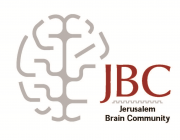
Prof. Shahar Arzy
Dept. Medical Neurobiology, Institute for Medical Research, IMRIC, Hebrew University School of Medicine, Jerusalem
p: 02-6776941
Dr. Shahar Arzy got his MD and MSc in neuroscience at the Hebrew University and PhD in neuroscience from the Swiss institute of Technology at the University of Geneva. He specialized in Neurology at Hadassah with subspecialty in cognitive neurology and epilepsy at Geneva University Hospital.
He now directs the Neuropsychiatry Lab at the Hebrew University and runs the neuropsychiatry clinic (with Dr. R. Eitan) and the epilepsy center (with Dr. D. Ekstein) in Hadassah Medical Center.
Dr. Arzy is a senior lecturer at the faculty of medicine, The Edmond And Lily Safra Brain Center and the Cognitive Science Program at the Hebrew University of Jerusalem.

